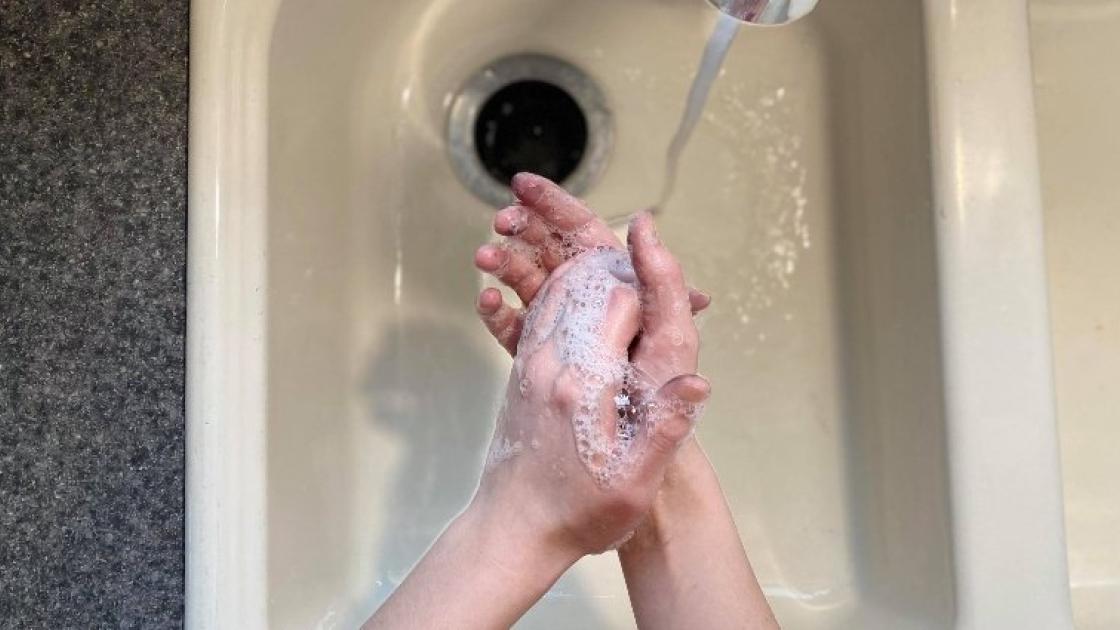
How to protect yourself & your loved ones from COVID-19
Like many of you, the team at SIU Medicine is doing its part to help slow the spread of COVID-19 and keep our community safe. With so much uncertainty and daily developing news about the global pandemic, it can be hard to know what steps to take to protect yourself and your family.
Informed patients tend to be healthier patients. That's why SIU Medicine physicians promote the use of research-based medicine and why we encourage people to stay educated about wellness topics that matter to them. With this in mind, we'd like to go over a few things about the COVID-19 disease we think are important to know: what its symptoms are and how to protect yourself (and your loved ones) from it.
Common signs and symptoms of COVID-19
COVID-19 is an infectious respiratory illness caused by a new type of coronavirus, or SARS-CoV-2. An outbreak of this illness, initially thought to be pneumonia, began in late December in 2019 in China, and has since spread around the world.
The virus spreads from person-to-person. People who are infected with the novel coronavirus have copies of the virus in the fluid inside their mouth and nose. Another person can become sick if they come in contact with this fluid either directly (such as by being coughed or sneezed on by an infected person) or indirectly (such as by touching an object that is contaminated with this fluid and then touching their face before washing their hands).
Once a person becomes infected with the virus that causes COVID-19, it usually takes about 2 to 14 days for signs and symptoms to start showing. Even during this time, the person can still spread the virus to other people. In fact, experts believe people may be the most contagious when they don't have symptoms.
According to the World Health Organization, the most commonly reported COVID-19 signs and symptoms include:
- Shortness of breath
- Cough
- Fever
- Loss of taste or smell
Some people with COVID-19 report other cold and flu-like symptoms, including chills, fatigue, muscle aches, runny nose, sore throat, and diarrhea. Symptoms are usually mild and slow to develop, and most people get better without the need for professional medical treatment.
However, some people who get COVID-19 can get very sick and may require hospitalization or even die, especially if they are older than 65, have underlying health conditions, or smoke. That's why it's so important to avoid getting the virus yourself even if you're healthy, because you could end up passing the virus on to someone else who may be more at risk for serious illness.
How to protect yourself and your loved ones from COVID-19
SIU Medicine physicians stand with the WHO and Centers for Disease Control and Prevention (CDC), and recommend the following ways to keep your family and community safe and reduce the risk of COVID-19:
- Keep your hands clean. Wash for at least 20 seconds with soap and water regularly and always before eating, after arriving home from essential business, after blowing your nose, coughing or sneezing, after going to the bathroom, after caring for someone who is sick, and whenever your hands are visibly soiled. Soap and water is best, but you can use an alcohol-based hand sanitizer if you’re not near a sink.
- Regularly clean and disinfect frequently touched surfaces in your home.
- Cover coughs and sneezes with a tissue, then throw the tissue away immediately. If you don't have a tissue, cough or sneeze into your elbow.
- Avoid touching your face, particularly your nose, mouth and eyes.
- Stay home when you are sick, and avoid close contact with people who are sick.
- Take good care of your health to boost your immunity and reduce your chances of getting sick. You can do this by eating a healthy diet, getting enough sleep and exercise, managing your stress, and staying in touch with your medical provider. Consider scheduling a virtual care appointment with your SIU Medicine doctor.
- If you are caring for a loved one in your home who is sick, try to give them their own room and bathroom, and do not share items with them (e.g., linens or dinnerware). Wear a mask when caring for them, and if possible have them wear a mask, too, especially if you need to take them somewhere for medical treatment.
- If you believe you are showing signs or symptoms of COVID-19, call your medical provider or local public health department. They will let you know what to do.
- The CDC now advises everyone to wear homemade masks when they go out in public to reduce the spread of the novel coronavirus. Please do not buy surgical masks or N95 respirators—we need to reserve the supply for medical providers who are caring for hospitalized patients.
Interested in learning more about COVID-19?
The COVID-19 pandemic is an ongoing global event. We know you may have questions—and we know those questions may change every day. SIU Medicine is sharing the latest information on social media on its Facebook and Instagram accounts.




